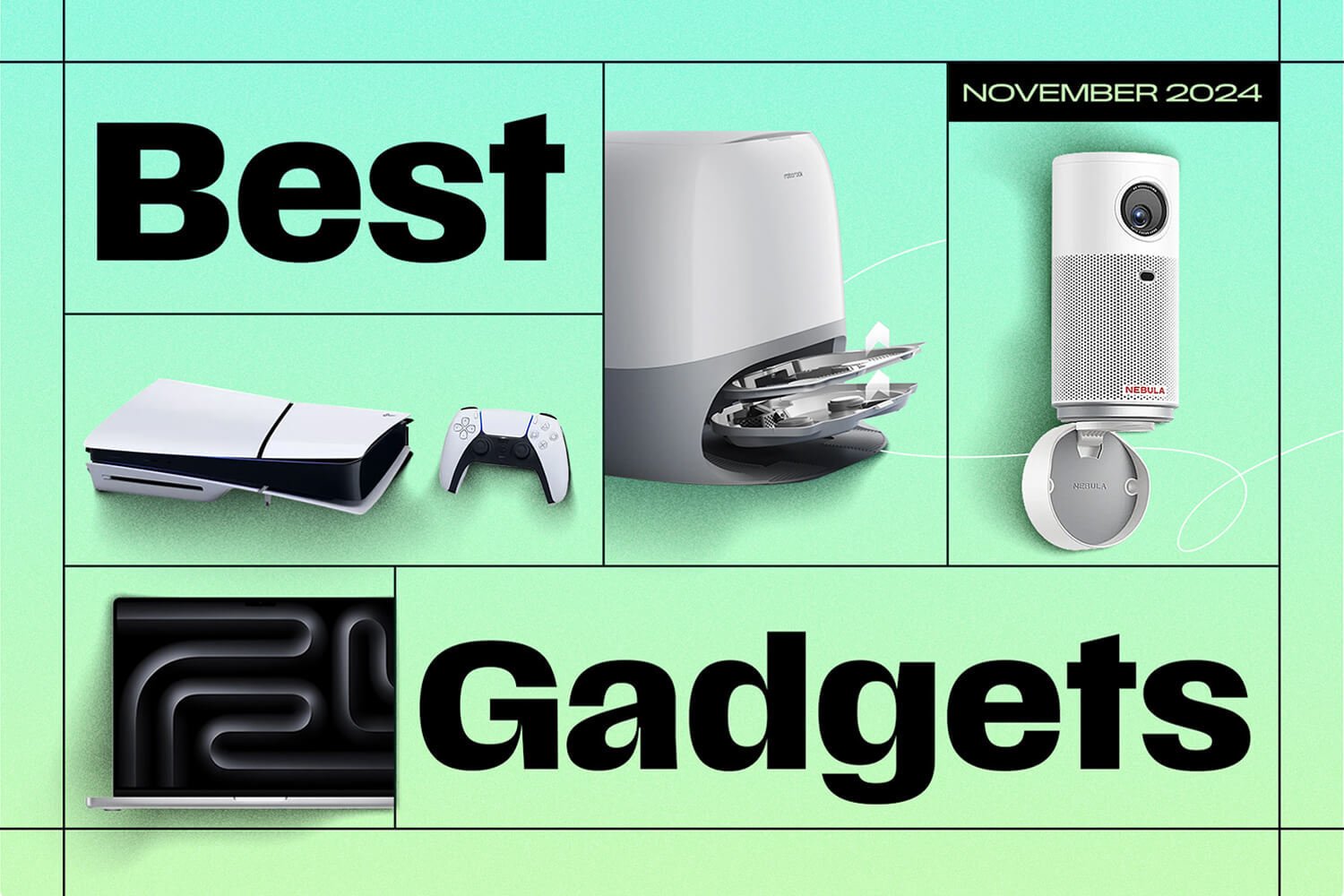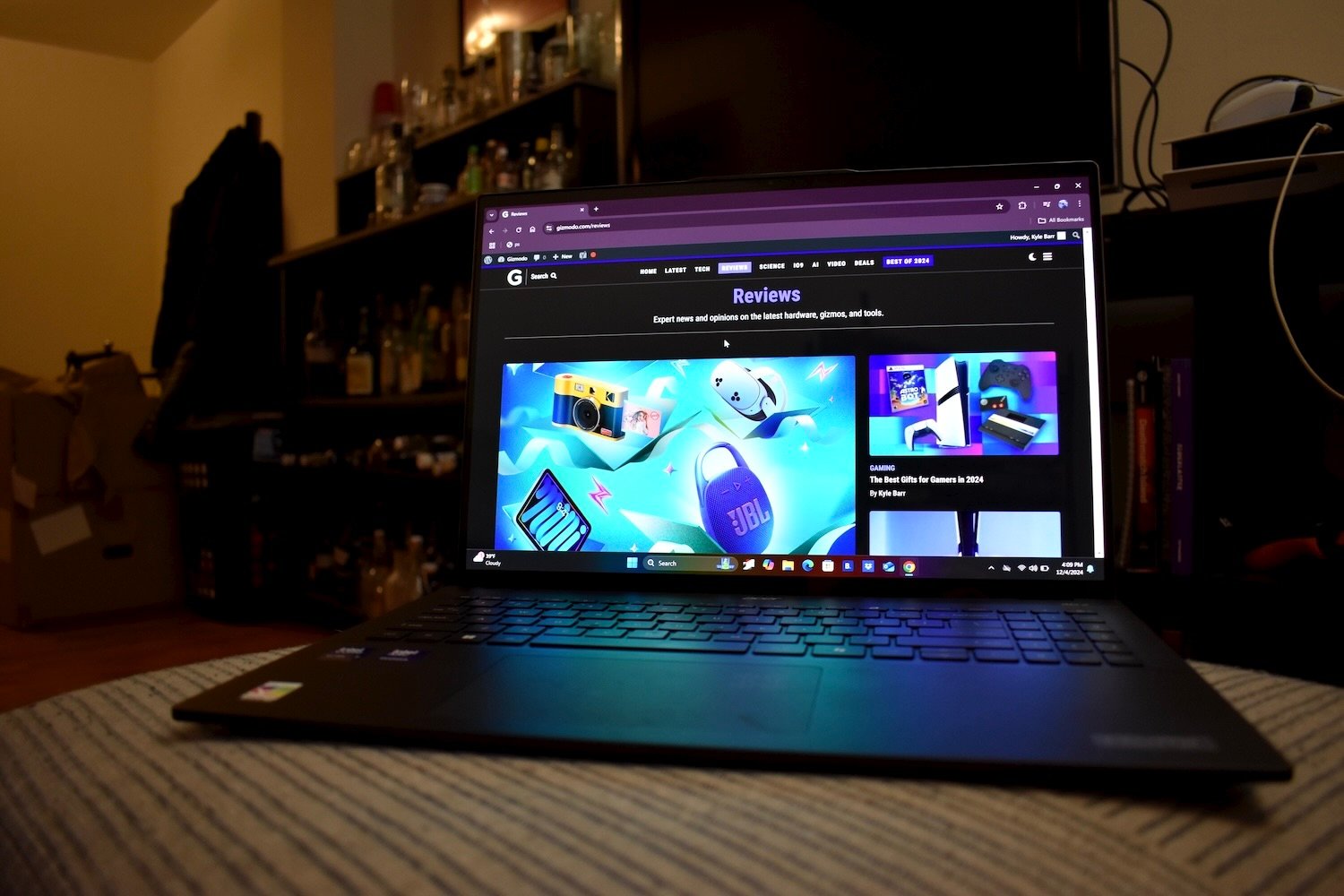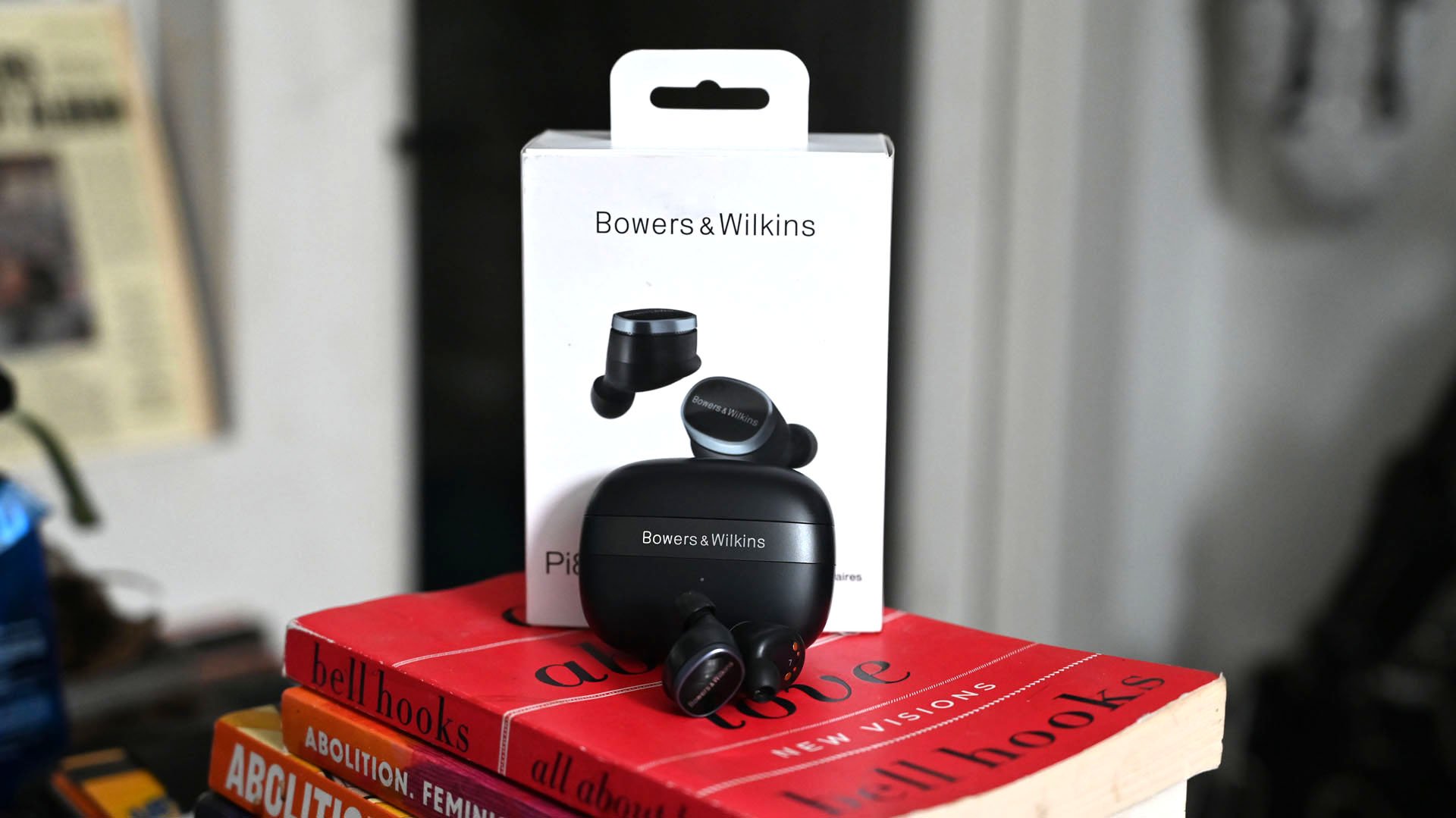
This autumn, quality gear is falling down on our heads like acorns from a tree. The start of November brought us the new MacBook Pros with M4 and the redesigned Mac mini, which has already become a favorite. Gamers got some new treats, including the retro Atari 7800+ and the ultra-modern Asus ROG Phone 9. Oh, and the PlayStation 5 Pro finally made its debut.
We learned that both Xbox and PlayStation are working on handhelds, though we don’t expect those any time soon. For now, the closest we have to a Sony handheld is the PlayStation Portal’s new streaming capabilities. We’ll have to wait for 2025 when games like Obsidian’s Avowed are set to make up for 2024’s dearth of quality content. A white Steam Deck is not nearly enough to satisfy our craving for more handheld hardware.
This month, we were surprised by a lot of weird and wacky tech, months before the annual CES showcase. There was the “Lightfoot” electric scooter powered by a massive solar panel and emoji-only pagers. We saw interesting watch designs, including one shaped like a ring and another made for rolling dice at your D&D table. As far as we’re concerned, Christmas came in November this year.
Corsair K65 Keyboard for Mac

Apple is eager to convince us that Macs are now a good choice for gaming. The jury’s still out on that (it still needs more compatible games to be viable) but at least now Apple has its own semi-official gaming keyboard and mouse. Apple partnered with Corsair to bring the K65 keyboard and the M75 wireless mouse to Apple’s online and in-person stores. The Mac version of the K65 includes the Mac layout but lacks the automatic connection features you expect on a first-party Magic Keyboard. You could, of course, buy a customizable mechanical keyboard for the same purpose, but this is the closest we’ve ever had to an official Apple gaming keyboard.
See Corsair K65 at Amazon
TCL QM7 2024

When QLED TVs regularly cost more than $1,500, there’s a sense that going for the budget option may mean missing out. Sure, the TCL QM7 isn’t as feature rich as the top-end Samsung QLED television, but it’s damn good for its price (only $500 on Amazon right now). It has a nice display with plenty of I/O ports. The only big problems are its limited viewing angles and glare-prone display, which can be countered by some effective furniture arrangement. It’s certainly one to watch going into 2025, when we expect to see a whole new round of TVs hit the stand.
See TCL QM7 at Amazon
JLab Go Pop

You may assume that $30 earbuds can’t compete with $150 to $250 earbuds, and you would be right. However, the JLab Go Pop offers active noise cancelling for bargain basement prices, and it’s surprisingly effective for what you get. They’re not as comfortable or sturdy as more expensive earbuds, and the sound quality isn’t amazing. Taken for what they are, the JLab Go Pop buds are an incredibly cheap way of tuning out the world around you when listening to music or podcasts.
See JLab Go Pop at Target
Mac mini

Just when you stopped thinking about Apple’s little Mac desktop, the company launches one of the best Macs to date. The 2024 Mac mini is smaller than before, if a little taller and with no USB-A ports. With an M4 Pro chip, it’s a super fast and efficient machine for most intensive tasks. If it weren’t for that damn power button placed underneath the 5-by-5 inch box, it would be close to perfect.
See Mac mini at Amazon
PlayStation 5 Pro

Sony’s $700 PlayStation 5 Pro is this year’s big console hardware launch. Though it’s certainly expensive—and you have to pay extra for a disc drive—the PS5 Pro sports some of the best graphical capabilities you can get outside a full gaming PC. The performance bump we saw in games like God of War: Ragnarök was significant. It’s a quiet console with excessive power behind it, but most PlayStation 5 owners don’t need to jump ship. Instead, this is a premium console for those who demand the absolute best performance at 4K and 1440p.
See PS 5 Pro at Amazon
MacBook Pro 16 and Pro 14 with M4

The latest MacBook Pro models are effectively the same as they ever were. While it’s annoying for us tech reviewers, it means the latest MacBook Pros, with their most powerful chips yet, are still housed in a solid shell with plenty of ports and a nice-looking screen. That display is slightly brighter now for non-HDR content. The larger MacBook Pro with an M4 Pro is more powerful in benchmarks than the M3 Max, but most importantly, all Pros including the baseline MacBook Pro 14 now start with 16 GB of RAM. That’s significant, as Apple spent ages trying to convince us that 8 GB is enough. In the age of AI, 8 GB just won’t cut it.
See MacBook Pro 16 at Amazon
See MacBook Pro 14 at Amazon
Roborock Qrevo Curv

It’s hard for any robovac to set itself apart in 2024, but the Roborock Qrevo Curv manages to turn heads thanks to its ability to clear small hurdles. If you have small books or rugs on the ground, the Curv raises its rear and hops up without getting caught in any wayward wires or tassels. It’s also got the solid suction power and other features you want on a robovac.
See roborock Vacuum at Amazon
Timestop D-20

The Timestop D-20 is a simple, classic digital watch with one unique feature: It includes a random number generator specifically designed for use in TTRPG games like Dungeons & Dragons. The watch’s mechanical buttons allow you to cycle through different die types, from D4s up to D100s, and you can even roll and add multiple dice at a time for rolling damage on a fireball attack. It’s pricey at $160, but next year’s non metallic editions should inch closer to $100. The three-year battery life and simple watch face make it especially appealing to the old-school crowd who can’t remember to bring their dice every damn session.
Razer Freyja

The Razer Freyja is one of the most interesting leaps in gaming haptics since somebody first strapped a haptic motor to a vest. It’s also a problematic product that requires you to keep it plugged in with a short cable and connect it using two distinct layers of Razer software. While its game-specific Sensa HD haptics don’t provide that full-body experience you may want, the audio-to-haptics is particularly engaging. If you’re riding a motorcycle in game, you’ll feel every bump and gear shift like your ass is really on the bike. It’s far from perfect, but what’s there is still an exciting leap for immersive gaming.
See Razer Freyja at Amazon
Asus ROG Phone 9

Asus’ latest ROG Phone doesn’t have the over-the-top rear LED lights of the ROG Phone 9 Pro that lets you play simple arcade games on its back, but it’s no slouch in its performance. With the Asus ROG Phone 9‘s overclocked Qualcomm Snapdragon 8 Elite chip, it offered incredible performance across a variety of benchmarks and games. The big issue is its audio output, which paled in comparison to other $1,000 phones. It’s not the best device for most people, but for those who demand the absolute peak of performance on their mobile device, it may be the best option yet.
Atari 7800+

Atari’s retro redesign 7800+ is not a revolution in emulation, but it’s such a solid design that does what it needs to do. It allows gamers to take old Atari 2600 and 7800 game cartridges out of storage and play them on a modern screen. It takes seconds to set up, and you have the choice to play at full widescreen or at a classic 4:3 aspect ratio. Atari has also re-released several of its old titles, like Fatal Run, along with other games that came from the Atari homebrew community. The 7800+ serves as a model for how other legacy gamemakers can treat their back catalog.
See Atari 7800+ at Amazon
Casio CRW-001-1JR

While the tech world continues to obsess over smart rings, we’ve been more captivated by what may be the dumbest ring available. Casio’s CRW-001-1JR is a classic digital watch shaped like a ring. It looks like a watch, complete with a ‘wristband,’ though strapped around your ring finger it basically mandates the well-worn Zoolander joke: “what is this, a watch for ants?” As cute as it is, it’s only available in Japan (for 19,800 Japanese Yen, or $128). Perhaps with enough community caterwauling, Casio could find it in its slow-ticking heart to release the ring in the U.S.
Anker Nebula Capsule

We’re getting close to to the heyday of small-scale projectors, and so far the Anker Nebula Capsule is one of the best. It’s roughly the shape and size of a soda can, and weighs only a bit more. It incorporates Google TV to act as a small-scale streaming device that you can take anywhere. It projects at a 1280 by 720 resolution, which may seem small for its $400 price tag, but you’d spend hundreds of dollars more for something with better resolution. The Anker Nebula strikes a good balance between form and function.
See Anker Nebula Capsule at Nebula
See Anker Nebula Capsule at Amazon





